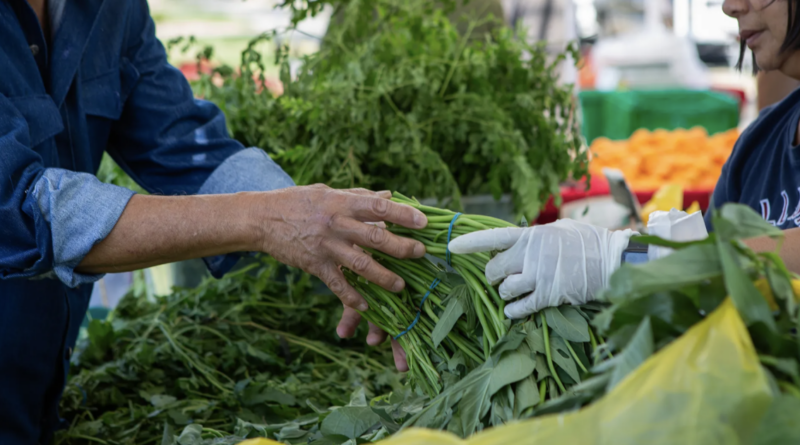Asian Angelenos have the hardest time getting enough healthy food, study finds
Asians report the worst access to healthy and nutritious food, according to the first study in Los Angeles County to reduce malnutrition.
USC researchers found that Asian residents are more than twice as likely to be malnourished than white residents.
What is ‘nutrition insecurity’?
Malnutrition is still considered as big a problem as food insecurity – when people don’t have enough money to buy enough food.
On the other hand, malnourished people may be able to buy groceries but have difficulty finding healthy foods that meet their cultural, religious or dietary needs.
This can result in people turning to foods high in fat and empty calories, which contribute to negative health outcomes from depression to diabetes.
“We now understand very well that good nutrition has a lot to do with the food environment you’re in, rather than people making poor health choices,” said Kayla de la Haye, who leads the Center for USC Food Equity.
Looking for bok choy
This study did not understand why Asians have trouble finding healthy food. But de la Haye noted that even in a place as diverse as L.A. County, some Asian residents live in areas where the foods and ingredients they love are not readily available.
Take Chinatown. The past few years have seen major Asian supermarkets close or leave the area, forcing its aging population to adapt to shopping.
“They may have to go further,” said de la Haye. Or the types of food they want may not be available to them.
Leaders of local food equity organizations were not surprised by the survey’s findings.
Alba Velasquez, executive director of Los Angeles Food Policy Councilhe said he only had to look at whole food stores to see the problem: They don’t have a wide variety of Asian products and ingredients.
“Japanese radish, bitter melon, bok choy, taro, eggplant,” Velasquez said. “When we think about access to healthy food, unfortunately it doesn’t affect these culturally related foods.”
Improving nutrition
Velasquez said the study highlighted the need to ensure that Asian fruits and vegetables are included in food assistance programs – the work of organizations that focus on Asian American and Pacific Islander communities such as. API Forward Movement.
One way to increase access to healthy foods among Asians is to promote farmers’ markets and provide language support to them. That’s it Hunger Action Los Angeles made it through the weekly market in West Adams that is popular with Korean adults.
Bilingual staff help clients with their CalFresh benefits, the state’s version of the federal Supplemental Nutrition Assistance Program, or SNAP, said Frank Tamborello, director of Hunger Action.
“Our Korean volunteers who work in the market say that many people are isolating themselves,” Tamborello said. They speak the same language. They have no other family still in the US. ”
Other important findings
Study, recently published in Journal of Nutritionsurveyed more than 1,000 people in 2022. It also found:
- 24% of the district’s population was food insecure and 25% was malnourished. Those who were food and nutrition insecure represented 14%.
- Hispanic residents were twice as likely to be malnourished than white residents.
- Adults aged 40 and under had the highest rates of malnutrition and food insecurity of all age groups.
Tamborello said the research findings are consistent with rising levels of food insecurity.
“The cost of health care is high and the rent is high – those are the main factors affecting access to food,” said Tamborello. And then on top of that, you have inflation.
Have a question about South Asian cities in California?
Josie Huang reports on the intersection of being Asian and American and the impact of those growing communities in Southern California.
#Asian #Angelenos #hardest #time #healthy #food #study #finds






